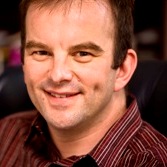Why Westminster?
May 12, 2009

Dr. Carl Trueman, vice president for academic affairs and prof. of historical theology and church history writes...
"Approximately half of my sixteen years of teaching theology has been spent at Westminster. Prior to that, I was on faculty at two secular universities in the UK. The obvious question, therefore, is why did I make the move, at least in the eyes of the wider world, from being a mainstream academic to being a seminary professor, with all of the sectarian connotations that can have? And why did I bring my wife and children across the Atlantic, thousands of miles from family, friends, and all that is familiar, to do so?
"The answer is complicated in the details but the general principle is pretty straightforward: the Reformed faith respects the fact that Christian theology is catholic, historical, intellectually demanding such as to challenge the greatest minds but also simple enough for a child to grasp.
"As such, a Reformed seminary such as Westminster is the place to study Christian theology; and it is also the place to teach it. More important: commitment to this deep view of the coherence and beauty of the Christian faith requires a commitment to the Bible’s view of its own authority. Again, this was where Westminster appeared superior to the universities where I worked.
"There is not space here to deal with this in detail but here are some brief thoughts.
"My own work on the sixteenth and seventeenth century convinced me early in my career that the connection between exegesis and theology is absolutely critical for the Christian faith, and that the dialogue necessary between these two is only possible on the basis of an acceptance of the basic authority of Scripture, and of the one God who speaks coherently and consistently in, through and by Scripture.
"Universities deny that basic premise, with the result that today their departments of theology tend to have a unity that is little more than external and administrative, with different academics pursuing their different specialties in functional isolation from each other. Further, the basic denial that God has spoken ensures that what is often taught as theology at such places is little more than contemporary cultural values expressed through, or baptized with, a religious idiom.
"This is even the case with seminaries that have abandoned biblical notions of biblical authority and inspiration: for example, a professor at Princeton Seminary recently launched a full-scale assault on the Bible’s teaching on homosexuality, something only possible when the Bible’s own teaching about itself is first ignored and when the need for humility before God’s word is simply cast aside.
"That is not an option at Westminster where, to put it bluntly, submitting in faith and prayerful humility to God’s word and allowing it to judge the culture, rather than standing in judgment over it and bowdlerizing it in light of the culture, are regarded as not simply desirable but absolutely necessary for credible Christian profession in every believer, and above all in those who presume to teach others. Such was the position of the early church fathers, the great medieval, the Reformers and the Westminster of today.
"Yet it needs to be stressed that holding to a high view of biblical authority does not require an abandonment of the life of the mind. It involves an abandonment of human pride, and a willingness to be despised by religion's cultural despisers, but it does not require brain death. Indeed, even as God’s word requires humility (Is. 66) so, by its very nature as the revelation of the mind of God, it demands engagement of the minds of men and women.
"For sure, scholarly theology requires footnotes; and orthodox theology is no exception. The faith can no more be properly articulated and defended without a scholarly apparatus than it can be dismissed without such, despite attempts by some so to do.
"Again, Westminster scored high for me: Machen and Murray were scholars; they read widely, they used footnotes; they employed their brains; and their tradition continues at Westminster. Indeed, speaking for myself, I have written for, and spoken at, more mainstream scholarly symposia since arriving at WTS than I did before.
"So that’s part of the story as to why a career university academic moved 3,500 miles to a small seminary. Here is a place where the brain is welcome, but the knee must also bow, not to the altar of the culture’s identity politics or the latest scholarly plausibility structures, but to the One who has spoken in his Word and in his words."







